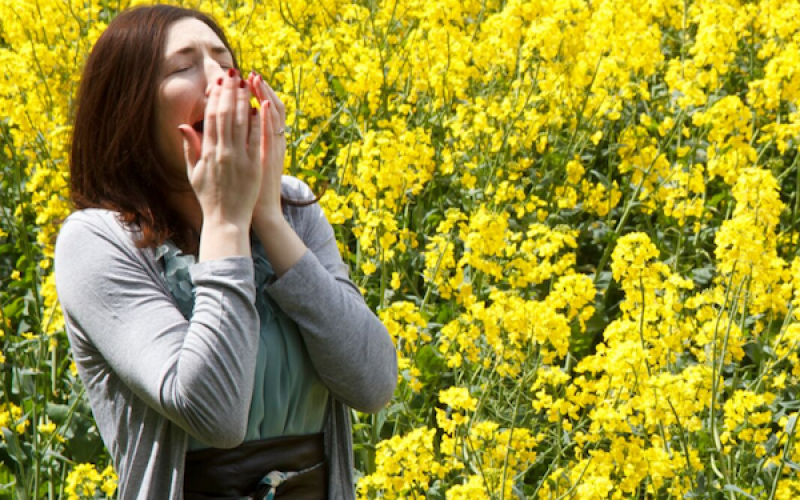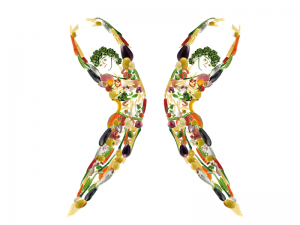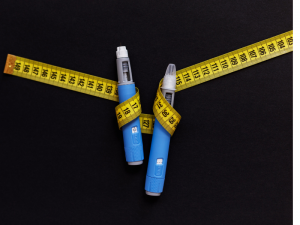Spring has finally sprung, the days are lighter and trees full of beautiful blossom. Sadly for many people this is the beginning of miserable time as they endure seasonal symptoms from allergy conditions, including hay fever.
What is hay fever
Hay fever is a pollen allergy; Allergic Rhinitis is the medical term for this condition. Seasonal allergies can occur all year round not just in the spring, and throughout the summer.
In hay fever, the body reacts to the fine, lightweight pollen particles from trees, shrubs, plants or grass as though it was harmful. In response, the immune system starts producing antibodies and the chemical Histamine which causes a variety of effects in an attempt to protects the body, including swelling, dilation of blood vessels, which increases permeability and lowering blood pressure;
When is pollen season?
According to the UK Met Office, the hay fever season lasts from late March all the way through to September. They break the pollen seasons down as follows;
- Tree pollen: late March – mid-May
- Grass pollen: mid-May – July
- Weed pollen: late June – September
Approximately 25% of all UK hay fever sufferers are allergic to tree pollen, which means their symptoms may be triggered very early on into the year. New suffers often mistake symptoms for those of a common cold or sinus infection; Most people are allergic to one type of pollen. However, others are unlucky enough to be affected by two or all three.

Signs and symptoms?
In hay fever, the body reacts to pollen as though it was harmful producing antibody histamine to try to prevent it spreading. The leads to developing typical hay fever symptoms such including:
- Nasal Congestion
- Post-nasal drip
- Excess mucus production
- Sneezing
- A runny nose
- Itchy, watery eyes
- Scratchy throat
- Decreased concentration and focus
- Exhaustion and sleep disorders
- Reduced sense of smell
- Mood swings
- Irritability
- Low blood pressure
- Asthma
- Hives
- Eczema
- Middle ear infections, itchy ears or an earache
- Headaches
Who gets hay fever
One in five people in the UK is affected by hay fever, and the number seems to have increased over the past 25 years. What we do know is that anyone of any age or at any time can be affected by seasonal allergy symptoms, although childhood is the most common time to be diagnosed. Some people have reported their symptoms are dependant on environmental factors such as flora types or pollution. For example, worse in the countryside and better near the sea
Risk factors
Seasonal allergy symptoms increase dramatically in some people, those with;
- Asthma
- Unmanaged stress,
- Deviated septum, nasal polyps
- Recent trauma or illness,
- Pregnancy
- Food allergies
Chronic insomnia can make people more prone to allergies; just as like physical trauma, following surgery or underlying illnesses this can compromise the immune system. Sadly there’s more, According to the British Institute for Allergy & Environmental Therapy, poorly managed and prolonged stress can lead to allergy symptoms or make them worse. The good news is that once adequately managed things usually improve. Pregnant women including those who have not previously been affected are more prone to allergic rhinitis and seasonal allergy symptoms.
Complications
Pollen can cause allergy-induced asthma with the resulting characteristic symptoms; wheezing, shortness of breath, chest tightness, coughing and difficulty breathing. Its worth noting that a persistent cough is often the first and only sign of asthma in babies, toddlers and young children.
Treatment
Treating seasonal allergy symptoms requires a multifaceted approach; medication and lifestyle
Medications
- Antihistamines are commonly used to treat for hay fever.
- Nasal sprays, from simple decongestant prescription corticosteroid spray, may be needed by some people.
- Antihistamines eye drops can be helpful too.
They do have side effects, most commonly:
- Drowsiness
- Impaired performance
- Dry eyes, nose and mouth
- Restlessness
- Heart palpitations
- In children, side effects can include: nightmares, over-excitability, upset stomach, impaired cognitive function
If these become am ongoing issue or treatment isn’t helping it might be an idea to get tested, your GP can arrange a blood test which may reveal what’s responsible for setting off your particular symptoms and help you create an effective treatment plan.
Self-help tips
There are lots of things you can try to manage or ease symptoms
- Pollen can stick to clothes so it’s advisable to change clothes as soon as you get home during your pollen season.
- Shaking coats outside before wearing can also be useful, just remember to cover your face or wear a face mask if possible.
- Shower before bed, pollen left on the skin and in hair overnight can make symptoms worse.
- Wraparound style sunglasses are the most effective in blocking pollen.
- Freshly laundered bed linen and clothes help to reduce incidental exposure to allergens. Hang laundry out early the early day or the evening, to avoid peak pollen level. Or If you can, dry clothes inside, especially if it’s a windy day
- If possible replace carpeted areas with hard-surfaced flooring.
- De-clutter especially the bedroom, to reduce dust and allergens.
- Watch/listen to the weather forecast, on high pollen count, days or windy days limit exposure.
- Wearing a mask outdoors can also be helpful.
- Remember to regularly bath or wipe down pets that spend time outdoors.
- Stop smoking. cigarette smoke will irritate airway linings make allergies symptoms worse.
- Eating spicy foods such as chilli peppers can help to widen the airways and make it easier to breathe, while other spices, such as turmeric, are natural anti-inflammatories that may help relieve symptoms.
- Quercetin is flavanol which studies have shown can suppress histamine production. Foods that are high in quercetin include green vegetables, berries, and apples.
- Avoid histamine; some foods including fruit can promote the body to release histamine, the chemical produced in response to infections, which is often the reason people report their mouth feels tingly when they eat some fruits such as bananas, papaya, pineapple, strawberries, tomatoes. Other culprits include pickles, cured and smoked meat fish, and shellfish. Also, wheat germ, cow’s milk, cheese, chocolate and some nuts.
- Avoid alcohol its unfortunately packed with histamine too.
- There is some good news around food. Low-histamine foods include freshly cooked meat, poultry, freshly caught fish, eggs, gluten-free grains: rice, quinoa, peanut butter, mango, pear, watermelon, apple, kiwi, cantaloupe, grapes, coconut milk, almond milk, leafy herb and herbal teas.
- Keep well hydrated.
- A trip to the seaside could calm symptoms

Disclaimer:
Please note: This is for guidance only, it should not be regarded as a substitute for medical advice, diagnosis or treatment given in person by an appropriately trained health professional.







